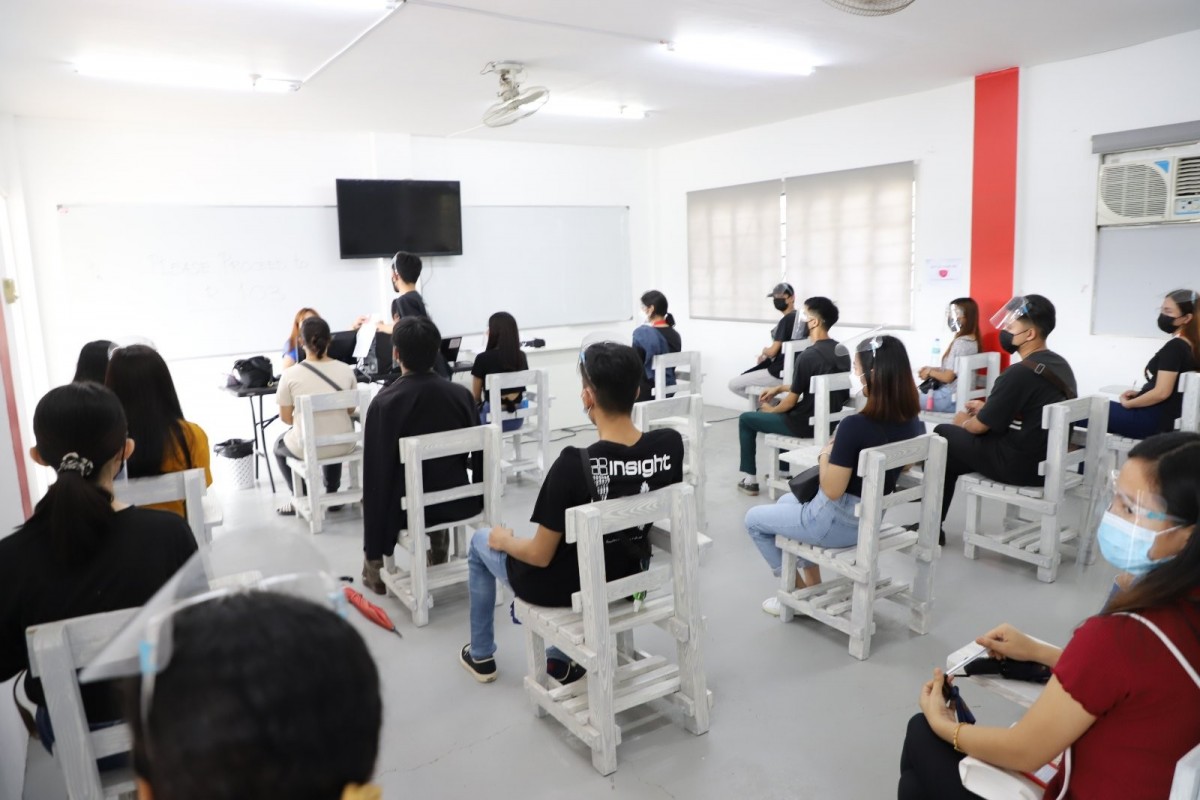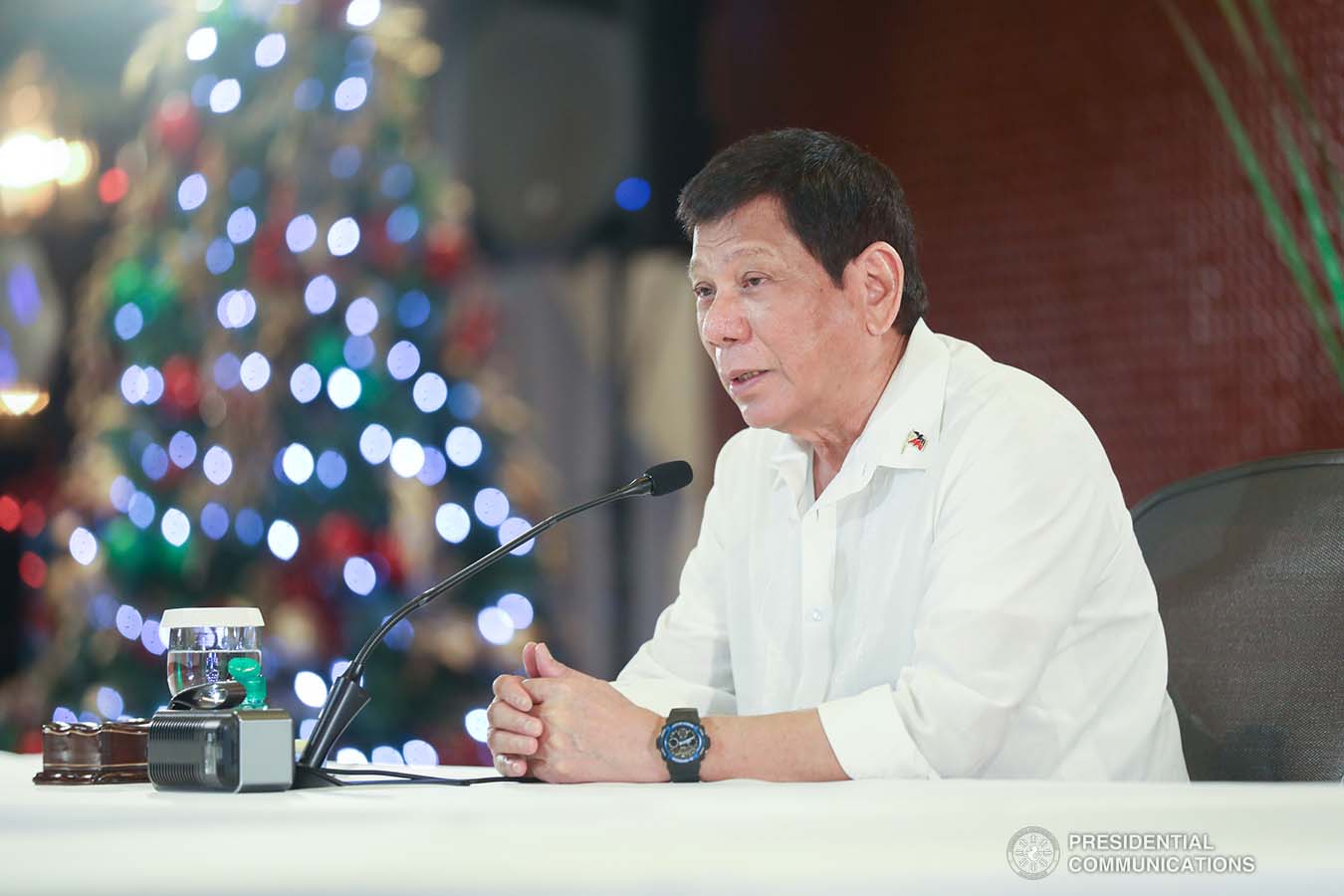PASIG CITY -- The Philippine government is determined to continue generating greater demand for COVID-19 vaccines in preparation for the three-day National Vaccination Days, and to push for the establishment of ‘Bakuna Bubbles’ beyond the National Capital Region.
During the virtual Let’s Go Bakuna Town Hall dubbed “Vax to the Max: Creating Bakuna Bubbles Beyond NCR” on Friday, National Task Force Against COVID-19 chief implementer and vaccine czar Secretary Carlito G. Galvez Jr. said the vaccination days will be declared as working holidays.
“We are very excited as we prepare for the conduct of our National Vaccination Days which will be held from November 29 to December 1. During this nationwide activity, we aim to administer 15 million jabs,” Galvez said.
“The recommendation of many is gagawin itong parang working holiday like the elections. At the election day, after they cast their votes, pwede silang bumalik sa trabaho nila. Because we want to save ‘yung working days para maging productive sa ating economy,” he added.
According to the vaccine czar, the National Vaccination Days will set the momentum for the administration of millions of COVID-19 jabs daily until the end of the year, and enable the national government to achieve its target of fully vaccinating at least 54 million Filipinos.
“Ang primary objective natin dito is ma-capacitate natin ‘yung mga regions na mababa [ang vaccination output] like ‘yung BARMM and other regions so that they could immediately catch up. We will have that momentum going forward hanggang December 30,” Galvez explained.
During the same forum, Health Secretary Francisco Duque III emphasized the need to ramp up demand generation for COVID-19 vaccines, especially in rural areas before the start of the heightened mass vaccination which begins at the end of the month.
Duque presented different strategies on how to convince more Filipinos to get vaccinated, as he stressed that vaccine hesitancy must be addressed first before considering the option of mandating vaccination throughout the country.
“These interventions would include persuasion through education, rational argumentation, giving facts through our ResBakuna campaigns, Ingat Angat campaigns and social media coverage of vaccine arrivals,” he said.
Duque said other interventions include designating a walk-in system and easy sign ups in vaccination sites, creating mobile clinics, establishing priority lanes. and incentivizing or providing benefits to residents who get vaccinated.
He said another more stringent approach the government can pursue is to impose mandatory vaccination among citizens.
Bakuna bubbles outside Metro Manila
Presidential Adviser on Entrepreneurship Joey Concepcion has been pushing for the establishment of ‘bakuna bubbles’ beyond the National Capital Region as a strategy to ease movement restrictions among fully vaccinated individuals and accelerate the revival of the nation’s economy.
In his talk during the virtual town hall forum, Concepcion expressed confidence that this initiative will help in preventing community-level lockdowns in the country by next year.
“The Philippines, to have a very strong bakuna bubble, has to achieve the same level [as NCR’s vaccination rate]. No one is safe until everybody takes the vaccine,” he said.
“Whatever it takes for us to convince our people, we must do. We want to see the end of lockdowns and I believe it’s possible in 2022,” Concepcion added.
Meanwhile, Interior Undersecretary Epimaco Densing III supported Concepcion’s proposed creation of bakuna bubbles in order to help other regions catch up with the NCR’s vaccination rate and accelerate the revival of economic activity in their localities.
“Creating a bakuna bubble outside of NCR is something very important that has to be talked about,” Densing said.
“While NCR is on its way to return to vibrancy in terms of economy, there’s a need to move to the countryside of LGUs outside NCR to help pump prime the LGUs outside NCR,” he added.
Easier mobility in LGUs
Union of Local Authorities of the Philippines (ULAP) President and Quirino Governor Dakila Cua agreed that it is easier now for people to travel but local government units must always be ready to act immediately once a surge in infections is reported.
“We do wish that we could make it so much easier for travellers and businesses to go around. But I guess ang pinaka-pinanggagalingan natin, when there’s a surge in your LGU, you have to contain it,” Cua said.
“And we are supportive that right now, we have embraced [a] granular mode of lockdown,” he added.
Meanwhile, Aklan Governor Florencio Miraflores thanked the national government for dispatching a sufficient supply of COVID-19 vaccines to Boracay, which he said will ensure the protection of local tourism workers.
Miraflores reported that 98% of Boracay’s tourism workers are now fully vaccinated. Moreover, Tourists coming to the island will no longer be required to present negative RT-PCR tests starting November 16 provided that they are fully vaccinated.
“It also serves as an incentive to our populace here because when they knew that we have this pronouncement, those who were hesitant to have their vaccinations queued already and made extra efforts to get vaccinated because of this policy. So vaccination with incentives also works,” the governor explained.
Reaping the benefits of early lockdowns
In the meantime, Galvez pointed out that the imposition of early lockdowns in August have been proven to be effective as reflected in lower daily COVID-19 caseloads in the past weeks.
“While it is true that the national government had imposed stringent quarantine measures, together with the recommendation of Sir Joey Concepcion, our main goal then was to contain the surge of coronavirus infections and to save the fourth quarter of the year. And most importantly, to prevent the loss of lives,” he said.
Coupled with ramped up vaccination efforts, the Philippines’ COVID-19 positivity rate is now below 5%, which is within the threshold set by the World Health Organization.
Due to the decreasing number of active cases in the Philippines, the country is not expected to hit 3 million coronavirus cases by the end of the year based on projections made by the OCTA Research Group.
The group also said the 7-day average of new COVID-19 cases in the country may go down to less than 1,000 by the end of November.
As of November 11, the Philippines has already administered 68,056,957 doses of COVID-19 vaccines nationwide. Of this figure, 31,020,380 Filipinos have already been fully vaccinated. (National Task Force Against COVID-19)




